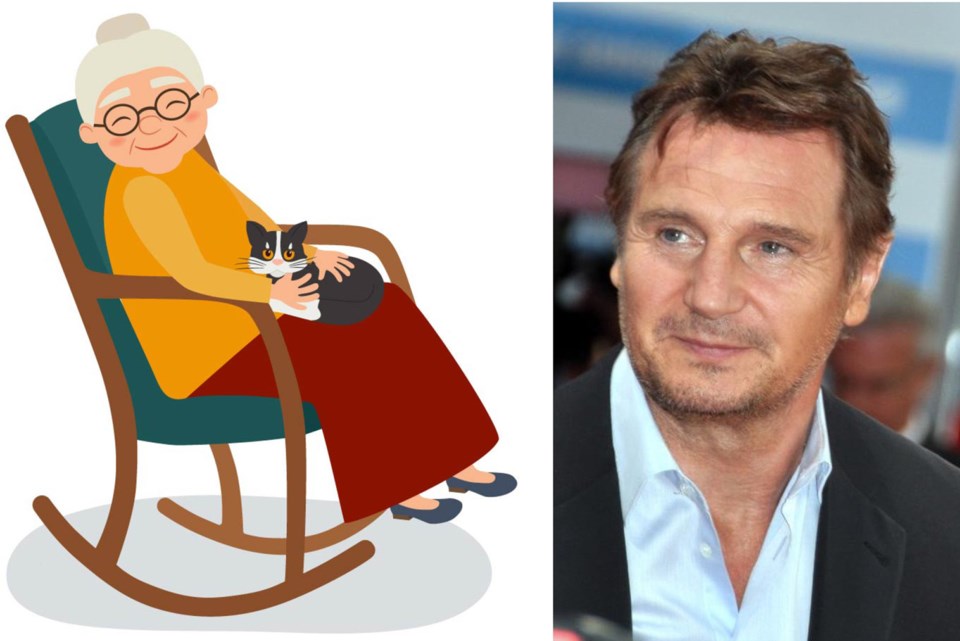Listen up, writers, journalists, bloggers and members of the human race: I am hereby serving notice that I am fed up with the ageism and sexism that manifests itself every single time a woman over the age of 50 makes headlines for anything.
I am fed up with the way that we, as a society, so unthinkingly minimize the actions and opinions of anyone who happens to possess both grey hair and a vagina.
The latest incident that pushed me over the edge? The coverage of the arrest of Laurie Embree, the 70-year-old “grandma” who was taken into custody at the pipeline protests in Burnaby, and the ensuing reaction from people on social media. The responders seem to fall into one of two camps. Either they support her, in which case they give her a patronizing pat on the head and respond with variations of: “Oh, go grandma, look at you being all feisty and spunky, I hope I’m like you when I’m old.” Or they don’t support her, in which case they say she’s only doing what she’s doing because she’s clearly old and losing her marbles.
Ugh.
In order to help clarify the situation, I have decided to implement a new rule of thumb that I shall call the Liam Neeson Principle.
It goes like this: Before you make a comment – any kind of comment – about a woman “of a certain age,” ask yourself the question: Would you say it about Liam Neeson?
Mr. Neeson is 66 years old, for reference.
You can pick any older male figure you like here. Harrison Ford (age 75) would work. Or Sylvester Stallone (age 71). What about Chuck Norris (age 78), Arnold Schwarzenegger (age 70) or Bruce Willis (age 63)? Heck, even Jean Claude van Damme (age 57) would do just fine.
In any case, keep the image of that particular older man in your head as you start to write or comment about any older woman. And, as you write or talk, note what subtle or not-so-subtle stereotypes and biases you are betraying with your word choice.
I’m gonna venture a guess that you would not ever refer to Mr. Neeson as plucky, feisty or spunky. You wouldn’t call him a “spark plug.” And you most definitely wouldn’t call him “gramps.”
(For a little more reading on the kind of word choices that demean women, check out this great piece from The Guardian.)
You might call Mr. Neeson a “veteran actor” or an “established Hollywood star” or an “action hero,” but odds are you would never patronize and infantilize him the way that people automatically do when the older person in question is a woman.
Aging men generally get treated with a certain amount of respect. They’ll be described in news stories as “retired engineer” or “lifelong civil servant,” and their opinions will be treated with a certain weight because of the added gravitas their years give them.
Aging women? They’ll be referred to as grandmothers, first and foremost. (This actually starts quite early in a woman’s life. Once you’re a mother, it seems it’s fair game for people to define you primarily as a “mom,” and secondarily as whatever else you happen to do for a living – regardless of what that is.) And the opinions of older women, when they’re noted at all, will be treated much as adults often treat the opinions of preschoolers: with a certain amused indulgence and an element of surprise, as though we’re startled that this not-quite-person in front of us actually has a mind of her own.
There are a few notable exceptions to this rule. I find most everyone, for instance, seems to take the opinions of Dame Judi Dench quite seriously. But the rest of us – we mere mortals, who lack a cultured English accent and who are still working on our imperious don’t-give-a-flying-fig-what-you-think-of-me manner - don’t tend to be as fortunate.
The Laurie Embrees among us, who make rational adult decisions to take rational adult actions, and then get patronized and talked down to? That’s much more the norm.
And we need to change that, starting now.
So from here on in, make it a point to adopt the Liam Neeson Principle.
If you wouldn’t dare to say it about Mr. Neeson because you are too in awe of his particular set of skills, then you shouldn’t say it about Ms. Embree. Or about any other woman.
Our hair may be grey. But our minds are quite intact, thank you very much.
Please treat us accordingly.



